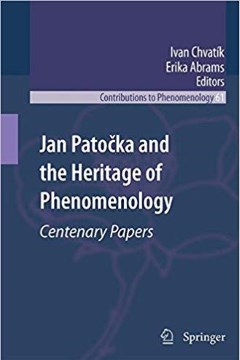Repository | Book | Chapter

(2011) Jan Patočka and the heritage of phenomenology, Dordrecht, Springer.
"Idealities of nature"
Jan Patočka on reflection and the three movements of human life
Steven Crowell
pp. 7-22
Like Levinas, Marion, Merleau-Ponty, and Fink – among many others – Jan Patočka was concerned to develop phenomenology beyond the restrictions imposed on it by its founder, Edmund Husserl, and only incompletely addressed by Husserl's successor, Martin Heidegger. But unlike the other thinkers mentioned, Patočka sees himself as remaining in the tradition of transcendental phenomenology, identifying his own position as "a formal transcendentalism of appearing as such." In this paper I explore some of the tensions that emerge in Patočka's attempt to bring "cosmological" notions – of the "whole," the "infinite," "nature," and so on – within the orbit of phenomenology while still adhering to the critical principle of "demonstration" characteristic of transcendental phenomenology. Specifically, I examine Patočka's attempt to criticize Husserl's concept of "reflection" – the locus of Husserl's transcendental method – without abandoning its critical potential. This leads to an examination of his phenomenology of "appearing as such," and to the question of how the laws or structures of such appearing are to be grasped in a methodological way. Given that such laws and structures are not causal operations but structures of meaning, a tension emerges between the goal of an "asubjective" phenomenology and the very idea of normatively structured laws of meaning. This, finally, provides a context for assessing the extent to which Patočka's late theory of the three "movements of life" can provide a philosophically compelling transcendental account of our access to the "interval" of meaning that Patočka calls the "world."
Publication details
DOI: 10.1007/978-90-481-9124-6_2
Full citation:
Crowell, S. (2011)., "Idealities of nature": Jan Patočka on reflection and the three movements of human life, in E. Abrams & I. Chvatík (eds.), Jan Patočka and the heritage of phenomenology, Dordrecht, Springer, pp. 7-22.
This document is unfortunately not available for download at the moment.



